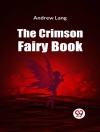In ‘The God of His Fathers: Tales of the Klondyke, ‘ Jack London captures the raw and visceral experience of the Klondike Gold Rush through a collection of compelling short stories that blend adventure, folklore, and the stark realities of survival. His robust prose and vivid imagery evoke the harsh landscape of the Yukon, revealing not only the physical challenges faced by prospectors but also their psychological struggles and moral dilemmas. London’s characteristic naturalism shines through, as he explores themes of destiny, human resilience, and the impact of nature on the human spirit, framing the Klondike not merely as a backdrop but as a formidable character in its own right. Jack London, an adventurer-turned-writer, was significantly influenced by his own experiences during the Klondike Gold Rush. His earlier experiences ignited a passion for storytelling that draws heavily upon his encounters in the rugged wilderness, providing an authentic lens through which he presents the stories of those who seek fortune in unforgiving terrains. London’s narratives often reflect his philosophical inclinations and social commentary, mirrored in his vivid characterizations and critical perspectives on humanity’s desires and ambitions. For those seeking a profound exploration of adventure, struggle, and the human condition against the breathtaking backdrop of the Yukon, ‘The God of His Fathers’ is an essential read. London’s masterful storytelling and deep insights into the human experience make this collection a significant addition to both literary and historical discourse, offering readers a captivating glimpse into a time of great peril and opportunity.
关于作者
Jack London (1876–1916) was a prodigious American novelist and short story writer, whose works catapulted him into literary acclaim at the turn of the 20th century. His experiences as an adventurer and prospector during the Klondike Gold Rush significantly shaped his literary voice, infusing his narratives with rugged individualism and the stark realities of nature and survival. London’s writings often explore the struggle between civilization and the untamed wilderness, as well as the impact of environmental conditions on human characters.
One of London’s lesser-known but impactful collections of short stories is ‘The God of His Fathers: Tales of the Klondyke’ (1901). This anthology captures the raw spirit of the Klondike, portraying the harrowing and often brutal experiences of those caught in the fever of gold hunting. Jack London’s ability to invoke the visceral sensations of the northern landscape and the psychological complexities of his characters demonstrates his mastery of naturalist and realist literary styles. His influence extends to modern literature, with his tales serving as seminal narratives that convey the tempestuous relationship between humans and the natural world they strive to tame.












